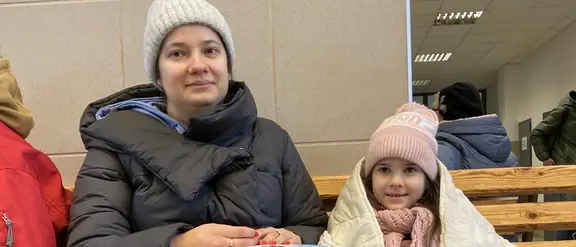Hungary: Integration of refugees
Refugees who reach Hungary over the Balkan route often make terrible experiences of violence; Pushbacks are also the order of the day against families and minors. When the young people arrive in Hungary, they do not know the rights they are entitled to, nor are they welcomed with open arms.
In May 2020, the government introduced new asylum regulations that make it almost impossible to apply for asylum in Hungary. According to these rules, asylum seekers - apart from a few exceptions - is not permitted to apply for asylum on Hungarian territory or at the border. You can only submit a "declaration of intent" to submit your application to the Hungarian messages in Belgrade and Kiev. On the basis of these explanations, the asylum authority can decide whether it or not it or not. As a result, the number of asylum seekers decreases drastically.
In recent years, the Hungarian government has actively stirred racism and shys up those who work for an inclusive society. In this way, non -governmental organizations should be legally prevented from helping refugees or even reporting on the human rights situation. Many Hungarian young people have prejudices against refugees, which they snap out of the media and political discourse, and are not themselves in contact with young people with escape history. Local administration is often overwhelmed and does not know how it should act sensibly.
The Hungarian Helsinki Committee is the only legally oriented NRO in Hungary that helps refugees, and the only provider of legal information in this area. In its empowerment courses, the HHC works with a critical pedagogy, the core of which is to recognize the individual expertise of the participants. It is recognized that you have already gathered a large wealth of experience about how it is to rebuild your life in a new country.
The HHC enables Ukrainian and non-Ukrainian refugee youth to work for their rights and against discrimination. For this purpose, it sets up a youth council with six members (including refugees, migrants and Hungarian young people), in which young people develop their skills in the areas of mentoring, communication and moderation. They support the HHC employees in all activities and are mentors and ambassadors for the same age.
The refugee participants can contribute to Hungarian society through empowerment courses, while the Hungarian youth is sensitized to human rights through sensitization camps and workshops. These courses and camps enable the participants and their mentors to get to know each other and take social measures together that cause sustainable and permanent changes. By giving the Peer mentors and their mentees the opportunity to develop their own initiatives together, it can equip them with instruments that can become real alternatives against the growing fatigue and disillusionment of Hungarian youth. In order to achieve a wide range of people, HHC also develops a strong online presence as part of the sensitization, which is aimed at Hungarian youth with targeted campaigns and messages. HHC also trains community services, mayors and teachers who directly influence and shape life both by refugees and Hungarian young people.
Help with a donation